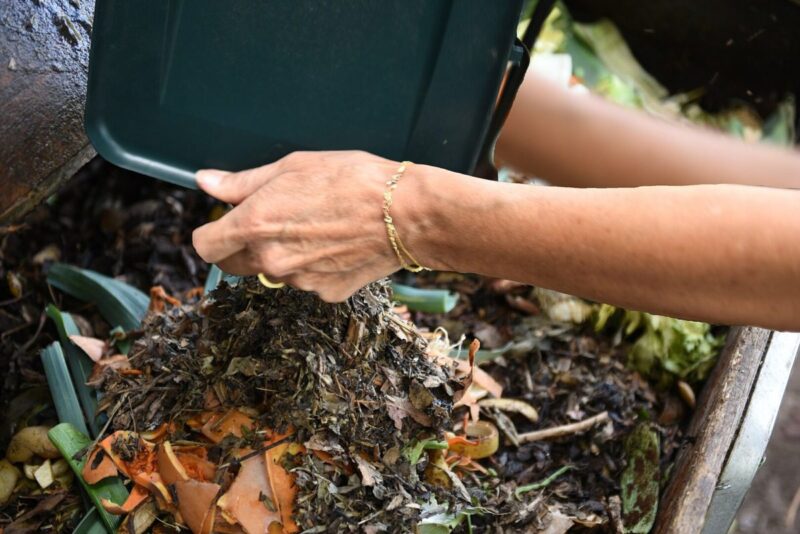
Photo courtesy of Markus Spiske/Unsplash.
Phoenix partners with Mill to boost food recycling at City Hall with 25 new devices. This initiative aims to cut landfill waste and promote composting.
In a groundbreaking move to combat food waste and promote sustainability, Phoenix City Hall has transformed its waste management approach with innovative food recycling technology. The installation of over 25 Mill food recyclers across Phoenix City Hall and the Calvin C. Goode Building marks a significant step in the city’s commitment to environmental stewardship and waste reduction.
Revolutionary food recycling system launches at Phoenix City Hall
The newly installed Mill devices offer a sophisticated solution to food waste management, converting food scraps into nutrient-rich material through a quiet and odorless dehydration process. This material, which resembles coffee grounds, is then collected by R.City, a local produce farm that transforms it into valuable compost for their crops, creating a closed-loop system.
Amanda Jordan, Phoenix’s Circular Economy Project Manager, highlighted the initiative’s importance: “Having Mill food recyclers in nearly every break room of the City Hall campus is a great way to engage staff in efforts to achieve our food waste diversion goals. We hope to lead by example as we encourage our residents to find better ways to repurpose food waste and scraps.”
Tracking progress through technology
The system incorporates advanced measurement tools, including in-device monitoring, app-based feedback, and quarterly reporting capabilities. These features enable Phoenix to monitor and reduce food waste effectively, supporting the city’s ambitious goal of diverting 50% of waste from landfills by 2030.
Mill’s Cofounder and President Harry Tannenbaum expressed enthusiasm about the partnership: “Tackling food waste is good for homes, communities, and city-wide infrastructure. We’ve invested significantly in Phoenix over the past year, and it’s inspiring to see the City take on a leadership role in the fight against wasted food.”

Photo courtesy of Bernard Dejean/Wikimedia Commons.
Environmental impact
By removing food waste, which is approximately 80% water, from the regular waste stream, the program helps reduce garbage truck loads, leading to decreased greenhouse gas emissions and road wear. The system also prevents methane emissions that typically occur when food decomposes in landfills.
Phoenix residents can participate in this environmental initiative through a subscription-based program offered by Mill and R.City. Subscribers receive quarterly benefits in the form of either fresh produce or compost, with a 30-day free trial available. The Public Works Department also provides alternative composting options for interested residents.
This story was generated in part by AI and edited by The Copper Courier staff.
This article first appeared on Good Info News Wire and is republished here under a Creative Commons license.

Arizona bill ignores climate change, blames poor air quality on other countries
When it comes to HCM 2010, a piece of legislation that attempts to pass the blame for Arizona’s emission pollution levels, the name of the game is...

Why climate activists oppose Arizona Sen. Frank Carroll’s proposal to confront poor air quality
A proposed state law that its sponsor says could improve Arizona’s air quality has met an unlikely foe: climate activists. Senate Bill 1128 would...

Kris Mayes sues ‘nuisance’ corporate mega-farms for exploiting Arizona’s groundwater rules
The state of Arizona filed a lawsuit Wednesday against a corporate farm operating in La Paz County, claiming years of excessive groundwater pumping...

Solar power growth could slow if Trump keeps promise to kill Biden-era incentives
The Inflation Reduction Act, President Joe Biden's signature climate policy, created tax credits to encourage a shift to solar and wind energy,...





